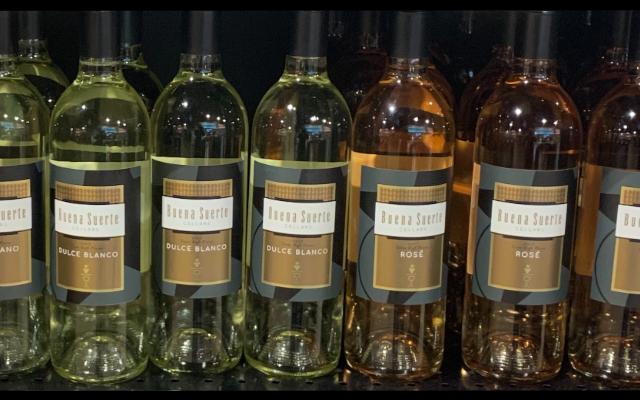Texas Wine Industry Hit Hard by Pandemic Shutdown

Coronavirus is the story of the year, and the further we get into 2020 the better understanding we have of the impact COVID-19 and related shutdowns have had on industries worldwide.
The wine industry, and more specifically the Texas wine industry, has become one of those casualties to the coronavirus shutdown. Think about all of the facets of wineries – from growing grapes, running tasting rooms, selling wine into restaurants and bars – every sector of their business model has been hit hard by the pandemic. Buena Suerte Vineyards Owner/Operator and Texas Wine Grape Growers Association Regional Director Bill Day says in a normal year, “the wine industry and the associated vineyards in Texas generate in excess of 2 billion…in total gross revenues to the State.”
This year, however, that is going to be radically different due to pandemic related shutdowns. “Imagine that your [a] wheat farmer or a cotton farmer, and your biggest buyer is China and China decides they don’t want it. Well ok, in a different way that’s what’s happened to the wineries out there because the Governor shut them down in concert with all the bars.”
Many folks out there would say that wineries and tasting rooms also operate differently than bars, which has caused debate across Texas. Why group businesses that sell the same products, but operate in different capacities into the same shutdown mandate? Why is our State picking and choosing which local businesses can open, and which have to remain closed?
Yes, Federal assistance programs have kept small business owners in our State afloat, but wine grapes and many other agricultural commodities were not included in any of those assistance programs.
It was not until the newly announced Coronavirus Food Assistance Program 2.0 that wine grape growers saw assistance during shutdown. But, the caveat to that is that CFAP 2.0 only assists growers, so wineries are still left out of the program, unless they too grow grapes. “Many of them do. But, others really don’t have any significant vineyards associated with them because, as I mentioned earlier, a majority of the grapes are grown on the High Plains. So, it’s helped the vineyards but it hasn’t helped the wineries.”
You can listen to the complete interview with TWGGA Regional Director Bill Day below. If you’d also like to support a local winery right here on the High Plains, you can visit Bill’s winery, Buena Suerte Vineyards, online.



